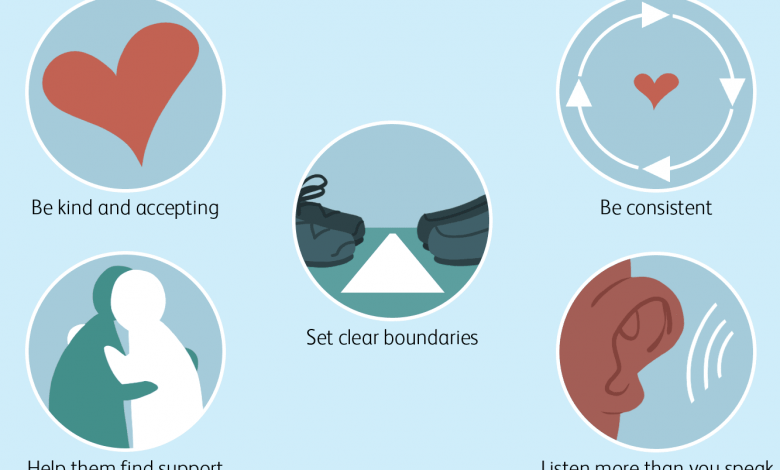How to Support Someone Through Drug and Alcohol Addiction Recovery?

After the person begins the treatment, there may be a period of relapse. Encourage and support the individual to return to remedy as soon as possible, as relapses are a natural part of the recovery process. They are a learning experience and an opportunity for your loved one to grow from the experience. Detox helps detoxify the body of drugs and alcohol, manage withdrawal symptoms, and gain stability. After alcohol detox, treatment will address co-occurring mental health issues. Counseling will address the underlying cause of drug use and relapse.
.
Limits and boundaries
According to Pinnacle Recovery Center, it is important to have limits and boundaries in drug and alcohol addiction recovery. Having limits and boundaries means setting and maintaining personal rules for yourself. For example, to stay sober, you must avoid drinking in front of other people or even interacting with drunk people. Having boundaries also means focusing on rebuilding your life and staying sober. Limits and boundaries help you fix your mistakes, and they assure you you’ll benefit in the future.
Setting limits with friends and family can be challenging. It can make you feel like a betrayer. In such a situation, you might need help setting boundaries with them. For example, setting certain times and locations where you and your friends can meet might be helpful, but not under your own authority. Setting boundaries in drug and alcohol addiction recovery can be challenging, but it can help you reclaim your life and avoid relapse. Moreover, setting boundaries with others will help you maintain your self-esteem and avoid blaming them for your problem.
Family therapy
Families can support someone through drug and alcohol addiction recovery by attending family therapy sessions. Family therapy can be beneficial for many reasons. First, it can help reinforce positive changes and motivate the patient to remain active in their treatment. In addition to supporting the patient in their recovery, the family can help the individual overcome relapse. Here are five reasons family therapy is vital for a person suffering from alcohol or drug addiction.
Most family therapists work with a family systems model, which looks at the entire family’s dysfunction. Each person in the family affects how the family functions, and when one member is impaired, the whole system suffers. In addition to addiction, family therapy can also help people in other parts of the family who have not been affected by substance use may notice that their behavior is dysfunctional.
Listening ear
One of the most critical skills for anyone attempting to support someone through drug and alcohol addiction recovery is listening. Fortunately, most people have a friend or confidant who can listen and help make sense of their experience. The fact that you are there for someone going through the same process as them is an excellent source of comfort. It is also essential for you to learn how to communicate effectively.
One of the essential skills to learn to be an effective listener is understanding how someone’s actions or words affect you. The difference between hearing and listening is that when you listen actively, you register the sounds and allow them to influence your feelings. A person in recovery will need a solid support system and positive influences to get through it.
Setting boundaries
There are many benefits to setting boundaries with your loved one during their recovery. In addition to strengthening your relationship with them, boundaries allow you to avoid the pitfalls of enabling behavior and allowing them to continue abusing substances. This is why it is crucial to establish clear boundaries when supporting an addict during their drug and alcohol addiction recovery. It is also vital that you enforce these boundaries and monitor their behavior.
Addiction recovery is a tumultuous journey. Emotions can become volatile, and communication may become difficult. Creating boundaries helps your loved ones recognize their own needs and develop self-worth. You can support their sobriety and build a sense of identity by setting clear boundaries. It is vital to ensure your loved one is aware of their boundaries to respect and protect them in the future.
Relapse is a normal part of recovery.
Relapse is an unfortunate reality for anyone in recovery. It happens when a person falls back into their addictive patterns, often resulting in a relapse. This is not to say that all lapses are negative. Instead, they are an opportunity to dig deep into your addiction’s underlying causes and grow and learn from them. Relapses are standard parts of drug and alcohol addiction recovery and can help you stay on track with your recovery.
The cause of relapse is complex. With addiction, the brain undergoes profound neurobiological changes. As a result, it develops an uncontrollable urge to use drugs or alcohol and is flooded with unpleasant emotions when those cravings go unsatisfied. Over time, this chemical rewiring of the brain makes it difficult for people to overcome addiction. Therefore, it is crucial to understand the cause of relapse and how it affects your recovery. Check abbeycarefoundation.com to know more about alcohol abuse.
For more valuable information visit this website
